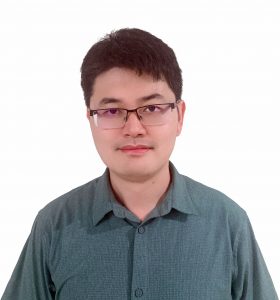
In China, the use of public transportation to facilitate a variety of activities related to daily life is the norm. With a wide-range of alternatives such as light rail, underground metro systems, high-speed rail, bus rapid transit, bike-sharing programs, and e-bikes, most Chinese travelers can get around places easily even if they do not have a car.
Public transportation is what Xiang ‘Jacob’ Yan, an assistant professor in civil engineering at the University of Florida, would like the U.S. to have more of. Improving public transportation in the U.S. is what he was motivated to focus on during his doctoral studies at the University of Michigan.
“I arrived in the U.S. in 2013 and did not own a car until 2017,” he said. “It was often challenging or quite time-consuming for me to get to places I wanted to go during those years. The experiences made me miss the public transportation options available in many Chinese cities, where I enjoy exploring places by taking buses, the subway, or riding bikes.”
Yan specializes in public transit, shared mobility, spatial analytics, and transportation equity. He is using cutting-edge technology such as artificial intelligence or machine learning to find ways to make transportation systems such as public transit more equitable and sustainable for people and society.
“Bridging transportation engineering, data science, and urban planning, I take an interdisciplinary approach to transportation research that connects technological innovations with community needs,” Yan said. “To this end, I work closely with public agencies and industry partners to develop intelligent decision-support tools that can help them better plan for and manage new mobility systems such as shared e-scooters and e-bikes.”
Yan is also affiliated with the STRIDE Center. He leads a project on Promoting Equitable Artificial Intelligence (AI) Applications in Transportation. Through this research project, Yan hopes to generate new knowledge on how AI can be applied effectively to equity issues in transportation.
“Artificial Intelligence (AI) is a very powerful general-purpose technology,” Yan said. “Most people know one thing or two about AI at this point, but as a society, we still have a lot to figure out regarding AI’s application in different sectors.”
The main product generated by this research will be a practical guide for transportation professionals to promote more equitable applications of AI technologies in transportation.
To achieve the goals of the project, Yan says the project will focus on two things: 1) examine existing AI applications and identify sources of biases (e.g., data bias, algorithm bias, and human bias) that can lead to inequitable outcomes; and 2) assess community transportation needs and identify potential AI applications that can address those needs.
For more information on this project, contact Dr. Xiang ‘Jacob’ Yan at xiangyan@ufl.edu.